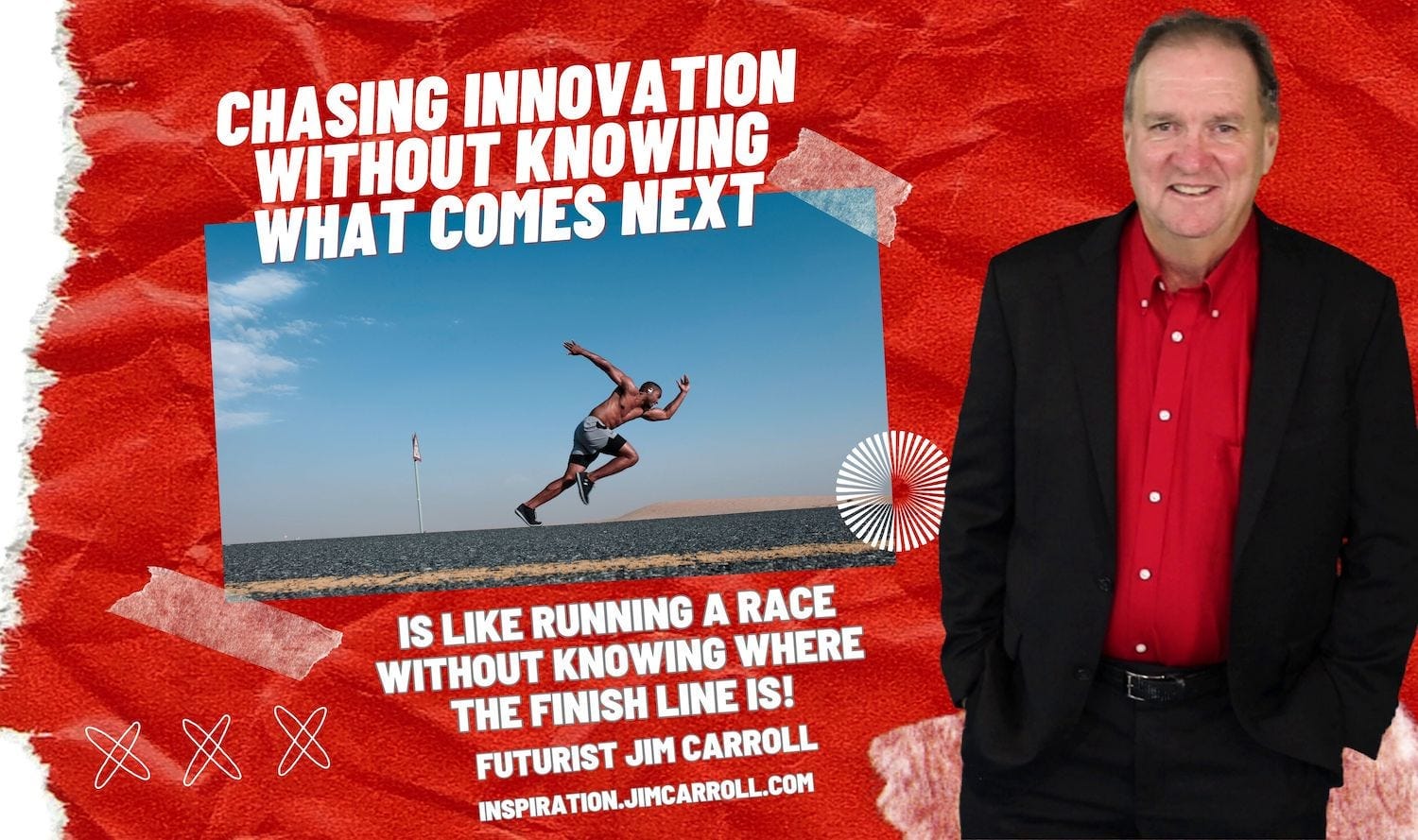
I always have a lot of interesting calls with people exploring potential speaking topics.
Some of the most fascinating are the ones where I'm told that 'we've adopted innovation as a theme for our event this year,' or that 'we've decided to do innovation.' In other cases, I'll get a call from a corporate group with someone stating that 'it's time we focus on innovation.'
I'm always mystified by these situations. How is that innovative thinking isn't a core of their mission, a focus of their everyday actions, something that is infused within their organizational soul? How is it that you just decide to 'do’ innovation?
In some of these situations, I'll observe that I'd like to start them out down the innovation pathway by first providing them with a clear overview of the trends that will define their future; that will give us a good framework to dive into the core ideas of successful innovation. In other words, this will give them a clear outline of where they need to be going and the unique thinking and corporate culture that will be necessary to take them there. That provides a clear link between future trends and innovation - to me, something that is absolutely critical. You can't have one without the other.
But sometimes the comment comes back: 'Oh, we don't want trends as a topic right now. We just want to do innovation.'
I am gobsmacked when I hear this.
Innovation isn't a one-and-done type of thing. It's not something you do once, and then move on to the next topic.
What becomes obvious in these situations is that the organization - or at least the people reaching out to me - hasn't spent a lot of time thinking through the disruptive trends that are defining their future, or have done a wonderful job in shrugging off the impact of those trends. In that case, it becomes painfully obvious that they've decided to run the innovation race without really thinking about where they might be going.
Hand in hand with this type of call are the types of expectations that they have around the topic - they are often looking for a framework, a magic formula, a structure to give them the 'secret' to innovation success. But, innovation doesn't work like that. It's not something that you simply drop in like an extra engine of creativity or a module of disruptive thinking.
That's why I've always linked the branding of what I do as a 'futurist' and 'trends and innovation expert.' You can't go down the path of innovation if you don't know what comes next and what to do about it. You can't simply chase new concepts with a view to finding some new pathway of achieving new things, without knowing what it is you are trying to achieve. You can't achieve the significant organizational cultural and structural change that is necessary to continually explore new ways of doing things if you don't know why you are doing those things - which happens to be the trends that define the necessity to do those things!
I've always viewed my role is to challenge people to accelerate their ability to deal with the faster rate of change that their businesses are going through and come up with solutions, opportunities, and ideas faster - and that's what innovation is all about.
Innovation isn't something you 'do.'
It's something that you become, by aligning yourself to the trends that define your tomorrow.
Futurist Jim Carroll has never believed in the idea of 'innovation frameworks' or 'secret formulas for innovation success.' He remains mystified when people still try to find them.
Thank you for reading Jim Carroll's Daily Inspiration. This post is public so feel free to share it.

